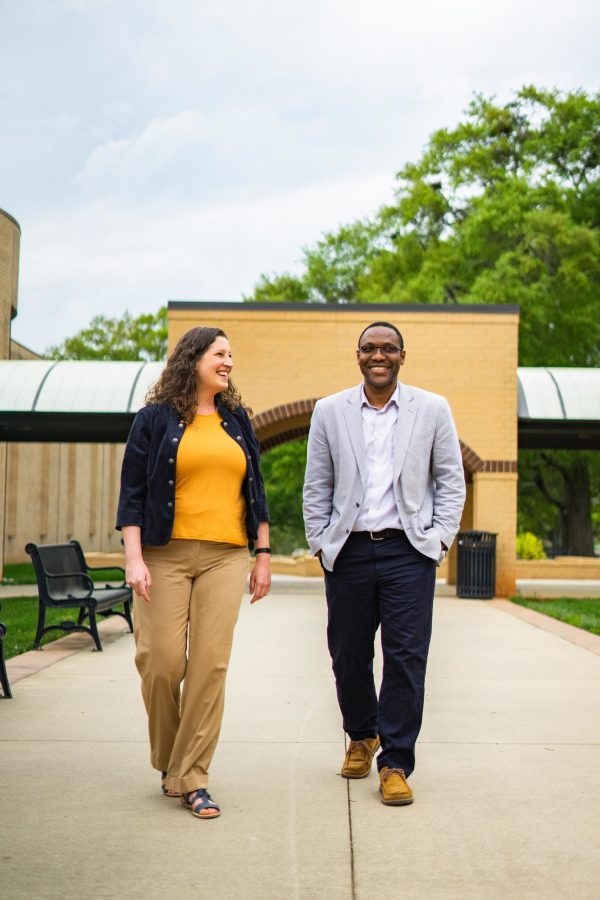The School of Health Professions hosted their second COVID-19 symposium, titled “COVID-19 — Global Health and Pathways to Recovery,” in the Mack Building on April 22, focusing on the long-term effects of the virus on both individuals and the population as a whole.
Division of Health Sciences faculty members Dr. Hannah Benge and Dr. Bernard Kadio organized the five-hour event. The event featured Benge, Kadio, four other faculty members and one guest speaker giving talks on how COVID-19 intersects with their areas of expertise. The event was streamed for public audiences beyond the BJU students who attended.
The symposium began with a welcome and introduction by BJU Provost Dr. Gary Weier before transitioning to the first segment. Guest speaker Dr. Jane Kelly, assistant state epidemiologist for the South Carolina Department of Health and Environmental Control, spoke on the impact of COVID-19 on health in South Carolina. Following her, Kadio expanded the discussion to the virus’s effect on global health.
After a short break, Melanie Schell, a faculty member who teaches a class on nutrition, delivered a lecture on the role of nutrition as it relates to COVID-19.
Benge spoke next on the topic of the growing number of patients who still experience symptoms weeks and months after having had the virus. Similarly, Dr. Stephen Chen, chair of the Division of Exercise and Sport Science, focused on recognizing and managing the fatigue that often persists after COVID-19 recovery.
Dr. Valerie Peterson, a Division of Nursing faculty member, spoke about the changes and adjustments that are occurring in the nursing profession due to COVID-19. Dr. Amy Hicks, chair of the Division of Health Sciences, finished with a talk on rebuilding communities affected by the pandemic.
Benge, who is a speech-language pathologist and works in inpatient rehab for St. Francis Hospital, said the idea for this symposium came during Christmas break when she noticed most of her patients were COVID-19 survivors. She began talking with Chen and Kadio about potential outreaches and programs to help these people. “This symposium arose out of what we were finding in the literature,” Benge said. “How do we get more information out there to really rebuild communities, rebuild our global infrastructure and rehabilitate these individuals who are struggling?”
One of the goals of the symposium was to provide people suffering from persistent symptoms with a way to understand what was happening and how to get help.
“Individuals that have a severe case of [COVID-19] don’t tend to have persisting symptoms,” Benge said. “What [researchers are] finding is about 30% of people that have mild to moderate cases have long-term symptoms lasting weeks to months. It’s those individuals who are working age, or even some college students . . . So, we want to get the information out there to build that resilience and the rehab to get them back to doing life.”
Benge said she is hopeful that the pandemic is drawing to a close so the societal focus can shift to rebuilding and rehabilitating affected people. Discussing the pandemic with fellow doctors and nurses showed Benge how important that focus will be. “We have not faced a disease like this that can manifest in so many different ways,” Benge said. “So this is not something that the effects of will go away easily.”






















































